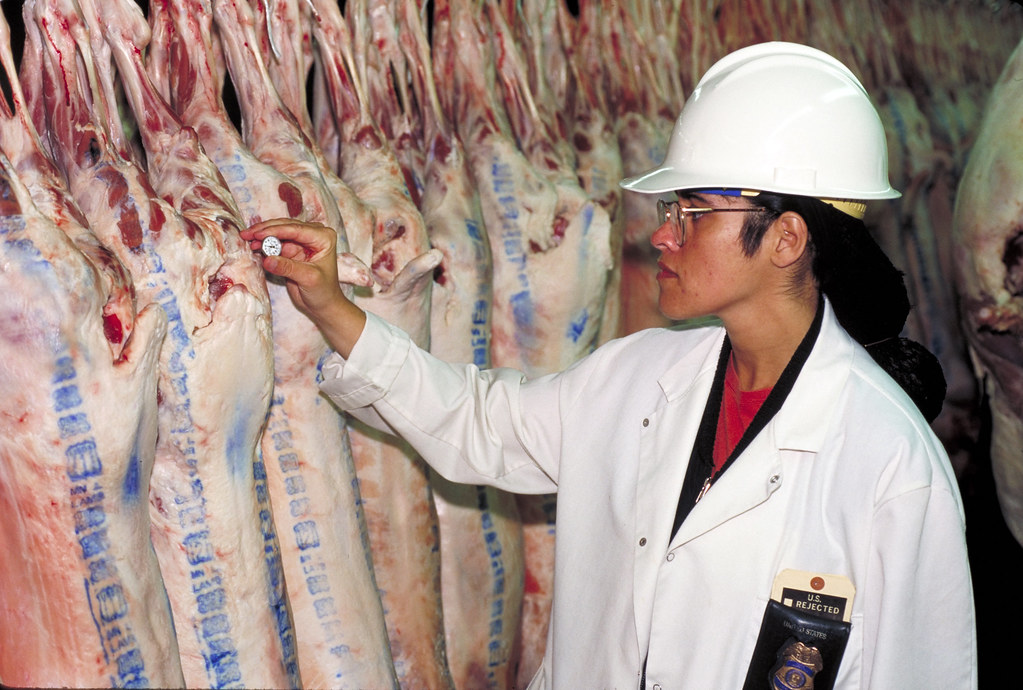The U.S. Department of Agriculture (USDA) is under pressure to keep slaughterhouses open amid the COVID-19 coronavirus outbreak. But, the pandemic could lead to closures.
In an attempt to reassure meat producers, the USDA announced Monday that slaughterhouses across the country will stay open. It said slaughterhouses would remain staffed with federal inspectors.
“We can assure you that the agencies are committed to ensuring the health and safety of our employees while still providing the timely delivery of the services to maintain the movement of America’s food supply from farm to fork,” the USDA said in a release.
The recent pandemic has greatly affected the livestock industry. Markets have been negatively impacted amid disruptions to supply chains.
According to Reuters, meat companies including Tyson and Smithfield Foods may shutter slaughterhouses if prices for livestock decline further.

Factory Farms and Disease
Factory farming practices have been linked to zoonotic diseases—infectious organisms like the coronavirus. Zoonotic diseases are able to transfer from animals to humans.
Cases of zoonotic diseases include the 1918 Spanish flu, which is thought to have spread to humans from birds, according to a study in the journal Nature. The deadly disease infected more than 500 million people across the world—nearly a quarter of the global population at the time. Chinese scientists traced severe acute respiratory syndrome virus (SARS) through civets to bats in 2017. The virus infected 8,100 people and killed nearly 800 between 2002 and 2003,
Crowded, unsanitary living conditions and the overuse of antibiotics among livestock create a breeding ground for certain diseases to flourish.
Hog factory farms may also be a cause for concern, Gregory Gray, an infectious disease epidemiologist at Duke University, told Scientific American. Pigs and humans have similar immune systems, so it’s easy for diseases to cross between the two species. Looking for novel coronaviruses in pigs should be a “top priority” given the scale of factory farming, Gray added.
Experts believe the coronavirus originated from a seafood market in Wuhan, China, which also sold wild game meat. More than 410,000 have been infected and over 18,000 have died, according to the Worldometers website, which tracks the virus in real-time.


